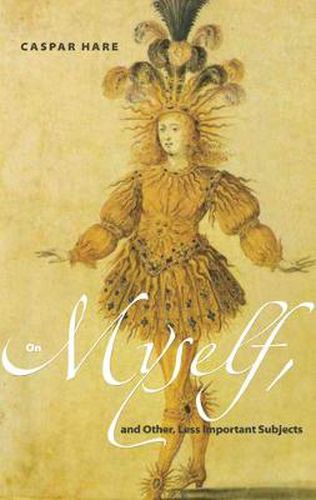Readings Newsletter
Become a Readings Member to make your shopping experience even easier.
Sign in or sign up for free!
You’re not far away from qualifying for FREE standard shipping within Australia
You’ve qualified for FREE standard shipping within Australia
The cart is loading…






Caspar Hare makes an original and compelling case for ‘egocentric presentism’, a view about the nature of first-person experience, about what happens when we see things from our own particular point of view. A natural thought about our first-person experience is that ‘all and only the things of which I am aware are present to me’. Hare, however, goes one step further and claims, counterintuitively, that the thought should instead be that ‘all and only the things of which I am aware are present’. There is, in other words, something unique about me and the things of which I am aware. On Myself and Other, Less Important Subjects represents a new take on an old view, known as solipsism, which maintains that people’s experiences give them grounds for believing that they have a special, distinguished place in the world - for example, believing that only they exist or that other people do not have conscious minds like their own. Few contemporary thinkers have taken solipsism seriously. But Hare maintains that the version of solipsism he argues for is in indeed defensible, and that it is uniquely capable of resolving some seemingly intractable philosophical problems - both in metaphysics and ethics - concerning personal identity over time, as well as the tension between self-interest and the greater good. This formidable and tightly argued defense of a seemingly absurd view is certain to provoke debate.
$9.00 standard shipping within Australia
FREE standard shipping within Australia for orders over $100.00
Express & International shipping calculated at checkout
Stock availability can be subject to change without notice. We recommend calling the shop or contacting our online team to check availability of low stock items. Please see our Shopping Online page for more details.
Caspar Hare makes an original and compelling case for ‘egocentric presentism’, a view about the nature of first-person experience, about what happens when we see things from our own particular point of view. A natural thought about our first-person experience is that ‘all and only the things of which I am aware are present to me’. Hare, however, goes one step further and claims, counterintuitively, that the thought should instead be that ‘all and only the things of which I am aware are present’. There is, in other words, something unique about me and the things of which I am aware. On Myself and Other, Less Important Subjects represents a new take on an old view, known as solipsism, which maintains that people’s experiences give them grounds for believing that they have a special, distinguished place in the world - for example, believing that only they exist or that other people do not have conscious minds like their own. Few contemporary thinkers have taken solipsism seriously. But Hare maintains that the version of solipsism he argues for is in indeed defensible, and that it is uniquely capable of resolving some seemingly intractable philosophical problems - both in metaphysics and ethics - concerning personal identity over time, as well as the tension between self-interest and the greater good. This formidable and tightly argued defense of a seemingly absurd view is certain to provoke debate.